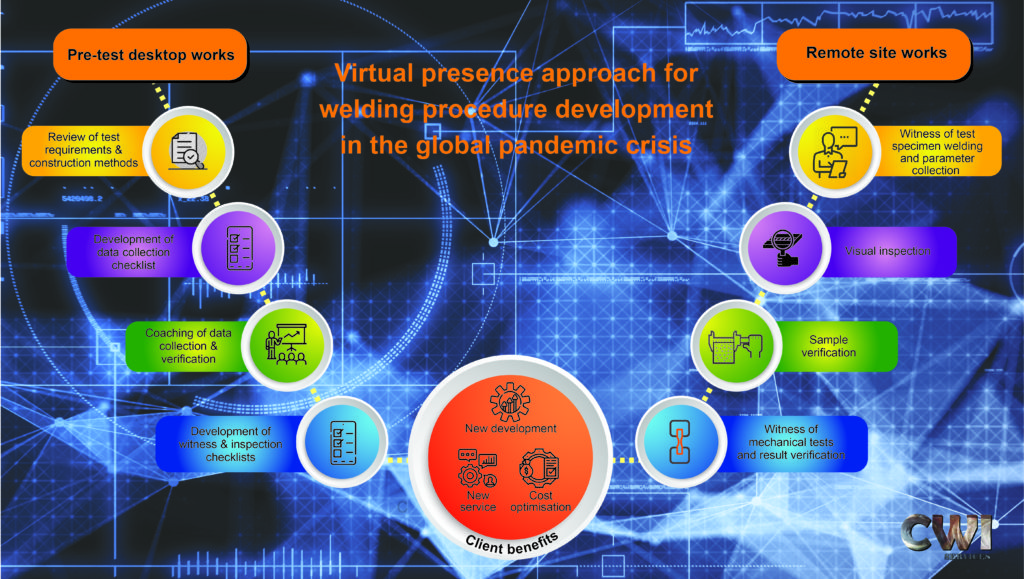CWI was approached by the shareholder of Edevu hydropower plant to conduct a welding and quality improvement programme to improve the welding practice and quality for the spiral case. CWI provided an experienced welding engineer qualified to certified international welding engineer and chartered quality professional to perform the welding and quality improvement programme through a three-week support at the project site.
A two-stages programme was designed by the welding engineer. The stages of the programme are:
Stage 1: Surveillance, planning and development
Stage 2: Implementation, coaching and improvement
The outcomes of the daily surveillance showed that the welding practice and welder compliance to welding procedure have been improved and no incorrect practice was adopted again. The inspection results showed that 99.95% of the weld length were accepted and the hydrostatic test was accepted at the first attempt.
The outcomes of this improvement programme showed that the combined method of welding and quality professionals adopted by CWI have resolved the welding quality and integrity concerns raised by the shareholder of Edevu hydropower plant and improved the work paradigm of the spiral case welding and inspection teams.
The details of this case study can be obtained from https://www.cwi-services.com/wp-content/uploads/2022/08/Case-study-012-Welding-and-quality-professions-in-one-A-case-for-spiral-case-welding-improvement.pdf
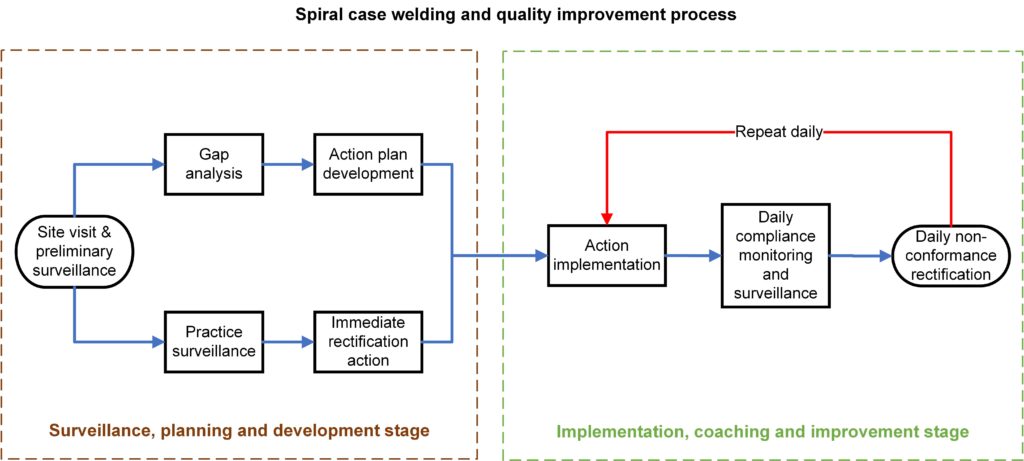
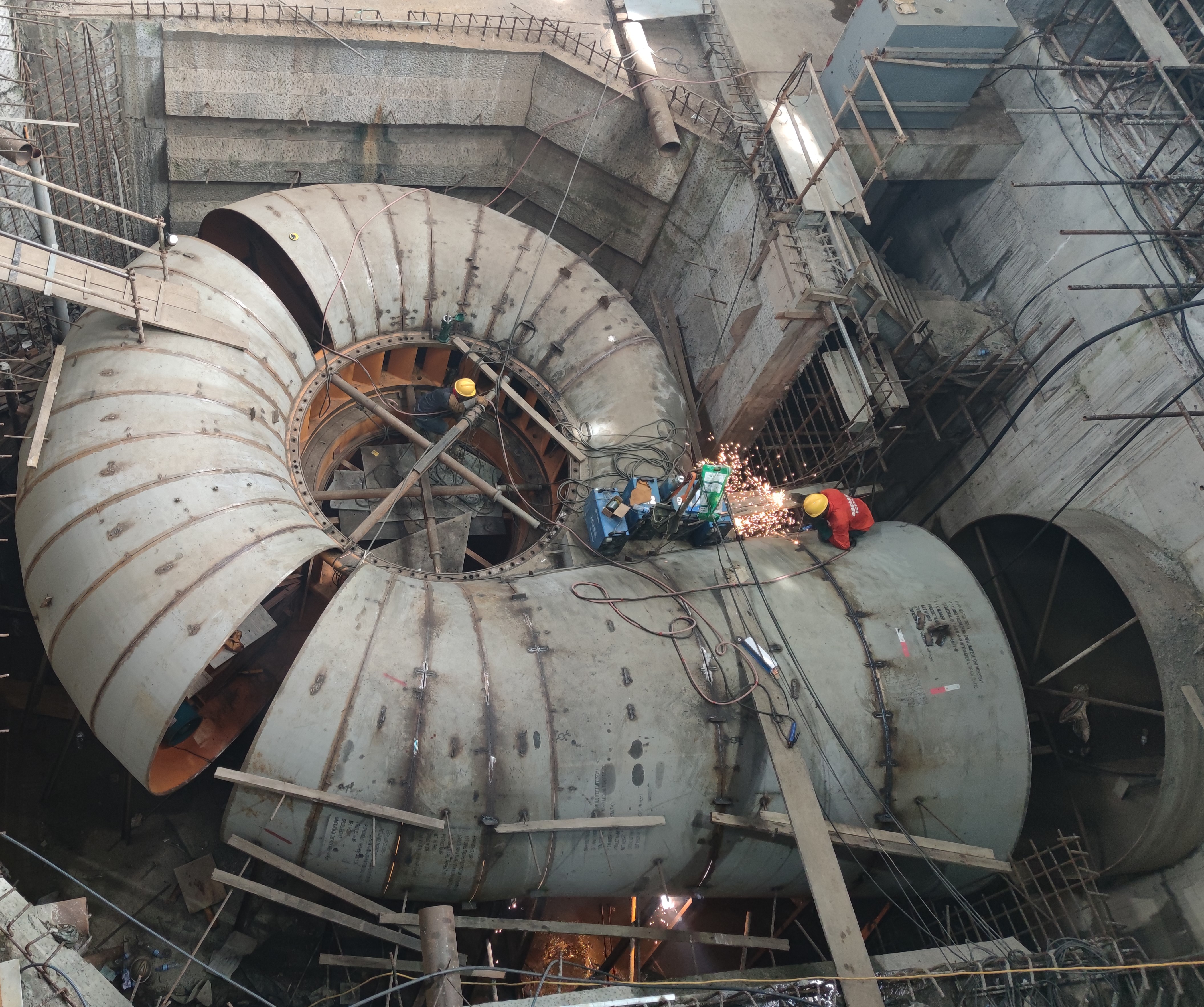
CWI recently completed a weld repair of a turbine runner for the Ramu 1 hydropower station owned by PNG Power Limited (PPL). CWI was contracted by the turbine refurbishment contractor, AG Investment Limited (AGI) to support the welding repair work of the turbine runner constructed from martensitic stainless steel and suffered from cavitation damage.
In the weld repair work, CWI provided consultancy support in:
Despite facing a number of challenges were faced in the weld repair duration, our team applied the experience, skills and knowledge with respect to material, welding and inspection to ensure the quality of weld repair. Although tight quality control measures were applied, the repair was completed two week earlier than the planned schedule. This was achieved through pre-mobilisation planning and repair methodology design, try implementation of repair methodology prior to start of weld repair, in-situ supervision by welding engineer in the repair process and effective coordination with the supporting departments.
The details of this case study can be viewed on https://www.cwi-services.com/wp-content/uploads/2022/07/Case-study-011-Turbine-runner-weld-overlay-repair.pdf
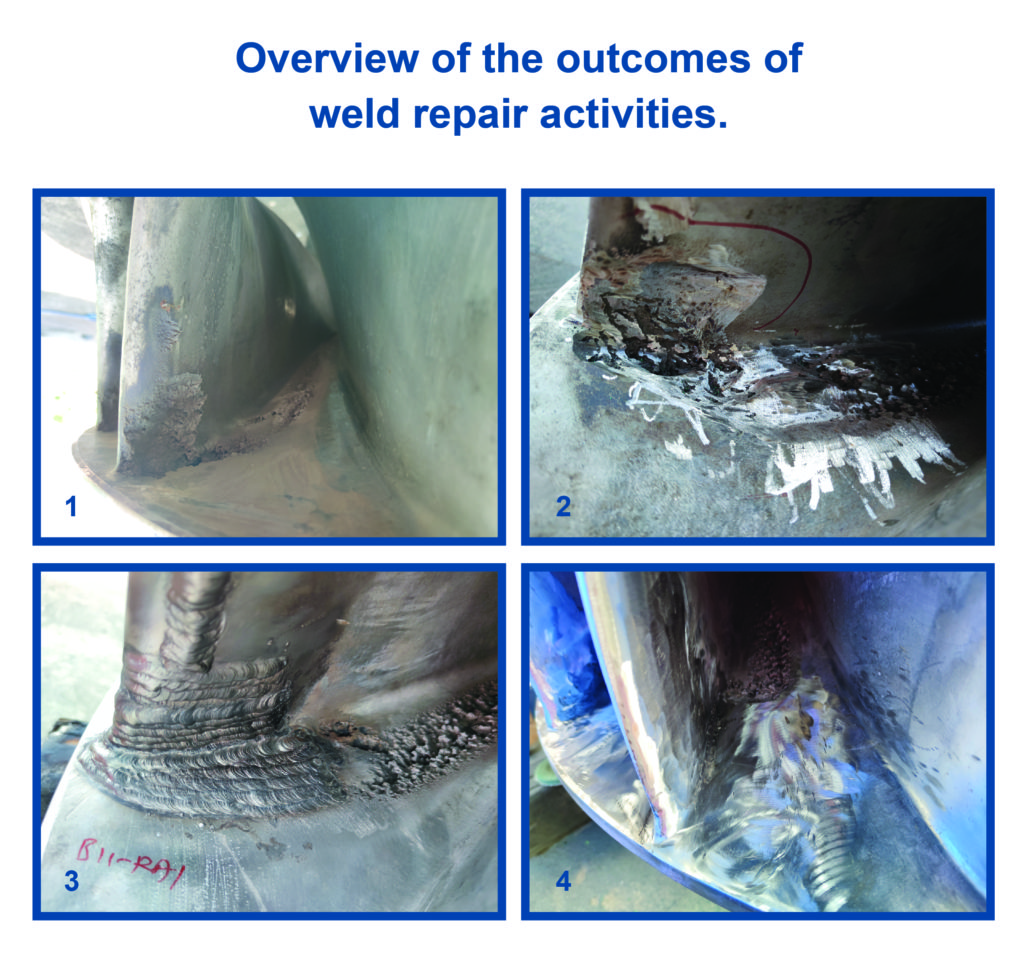
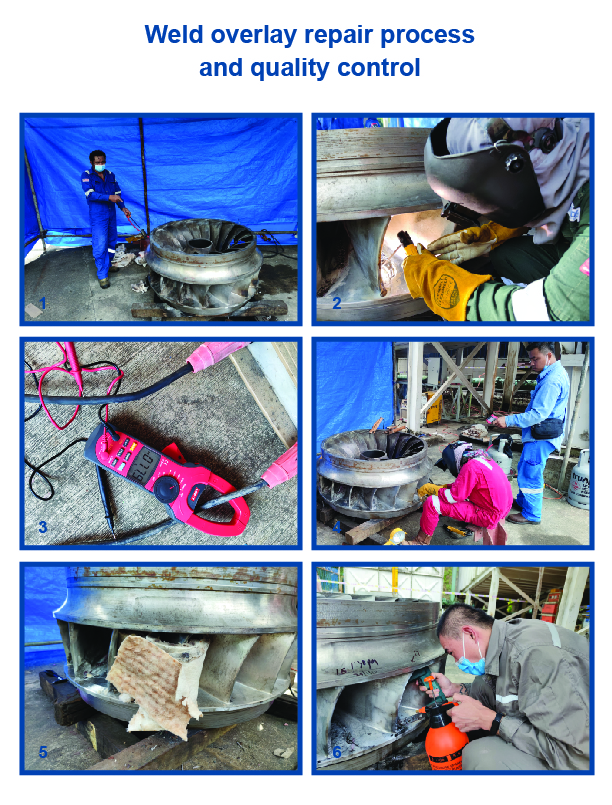
After half of decade of serving the industry, it has been progressive and remarkable for us. In this journey we have accumulated a lot of experiences, created many success stories and developed new capabilities. Hence, it is a good time for us to present our stories to the industry through our reimagined company profile.
We are delighted to invite all our industry partners and friends to look into our newly designed company profile to find out our capabilities, services and some success stories. https://www.cwi-services.com/wp-content/uploads/2022/07/Company-profile-design-final-web-use.pdf
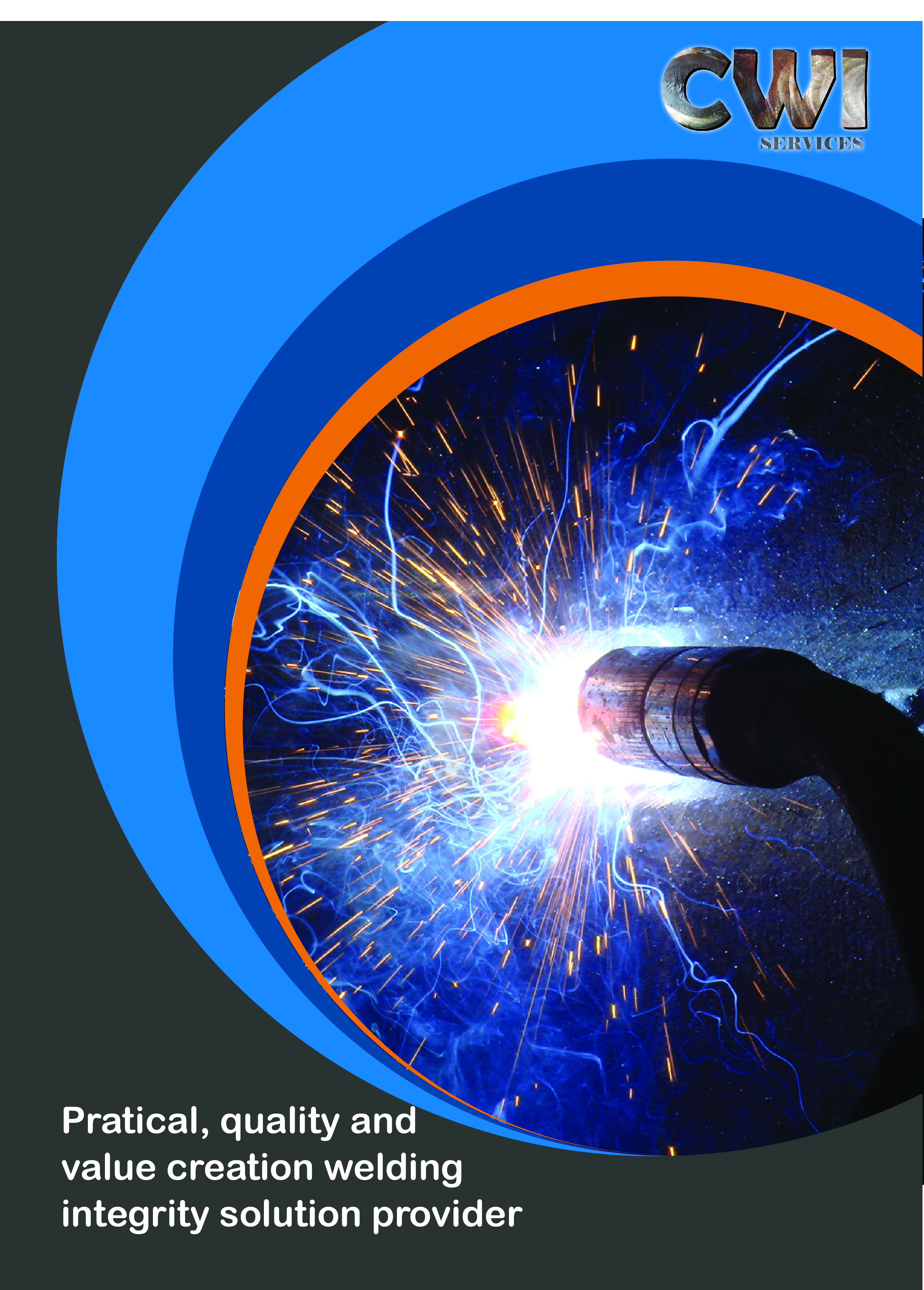
The theory of creativity thinking proposed by scholars emphasised that a creative and implementable solution does not come by accident or from someone who has no knowledge or experience of the respective field. Furthermore, the human creative process specified that generating knowledge is the first step of creative process that to enable creation of creative ideas or solutions. Generating knowledge is essential and critical to understand a problem in detail and the solutions applied by others.
Literature review is an effective method for generating knowledge. Review of industrial and academic literatures enhances our understanding of the available knowledge and information of the solutions that has been applied. Subsequently, the outcomes of literature review can enlighten us to generate creative and implementable solutions.
In a hydropower project, CWI was asked by the power plant owner to suggest solutions for controlling distortion for stainless steel plate welding. In order to produce applicable and implementation solutions for the customer, CWI conducted a critical review of literatures to identify causes of welding distortion and solutions to control distortion for stainless steel plate.
The critical review successfully identified a list of causes of distorting and distortion control methods for stainless steel plate welding. The causes and control methods were innovatively plotted on Ishikawa diagram to summarise the review outcomes in an ease to understand and legible manner as well as ease for further analysis.
This literature review shows that the CWI’s engineer integrated the knowledge and skills from welding engineering and quality management disciplines to produce and present the outcomes of the literature review. The success exploitation of knowledge and skills from different disciplines further enhance CWI capability and competency to offer literature review service. Our literature review service will assist our customers to capture knowledge, enhance understanding, process information and identify solutions for any welding challenges.
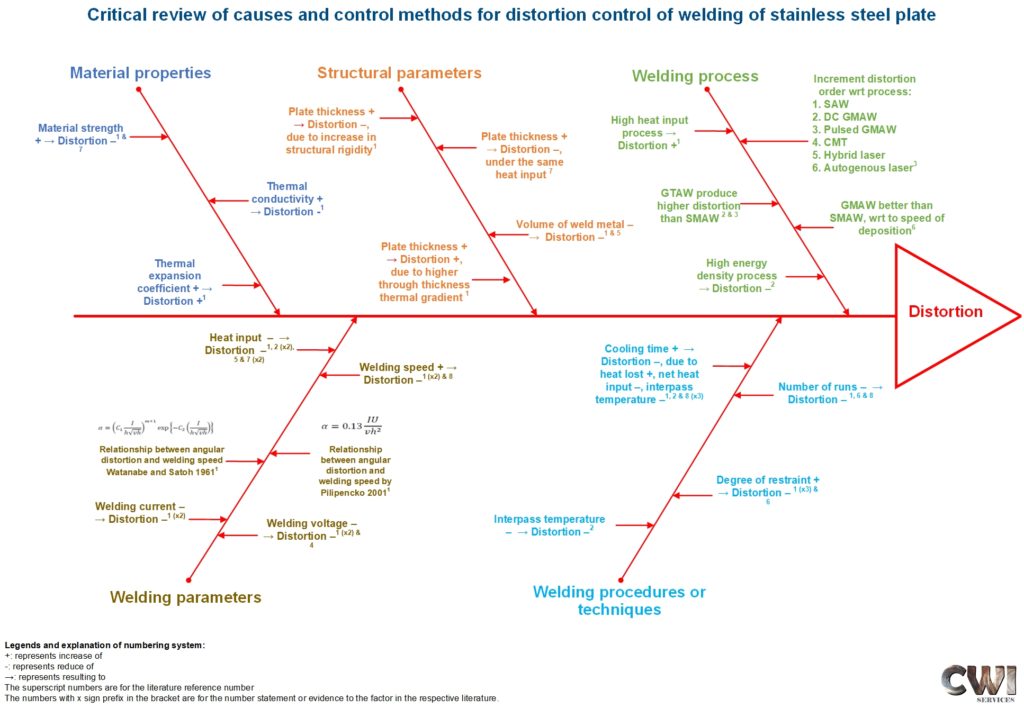
Background
The unprecedented Covid-19 pandemic crisis has brought remarkable unfavourable impacts to construction projects in the globe. Unfavourable impacts were caused by the closure of international borders and travel restriction policies, which subsequently brought unproductive effects to personnel mobilisation and logistic arrangements for materials and equipment. Consequently, delay the project execution and progress.
CWI was engaged by a hydropower plant construction company in Papua New Guinea (PNG) to develop welding procedures for high strength steel welding for a surge tank. However, the welding procedure execution activities was held due to travel restriction. In order to avoid further delay of welding procedure development activity, CWI took initiatives by applying video conferencing technology to remotely support the welding procedure development activity.
With the combination of video conferencing tools and enrich knowledge and experience of the welding engineer of CWI, the welding procedure development service was delivered in a virtual presence environment to complete the qualification test programme in China. The adoption of video conferencing technology to perform welding procedure development activity was first of its kind for this extensive human interaction service activity.
Pre-test desktop work
Absence of welding engineer at the welding and testing sites has added additional challenges to the execution of test activities due to absence of face-to-face human interaction and limited understanding of the site and equipment conditions. However, the welding engineer of CWI took an initiative to walk extra miles by performing extensive planning, preparation and coordination activities in the pre-test desktop work stage to minimise the impact which could be brought by the challenges mentioned above.
1) Review of requirements and construction method.
2) Development of data collection checklist.
3) Coaching of execution of data collection and verification.
4) Development of witness and inspection checklist.
Remote site work
When the welding procedure development programme progressed into the execution phase, witnessing and verification activities were carried out remotely by the welding engineer. The remote witnessing and verification activities were carried out to ensure test specimens were welded and tested in accordance with test requirements as well as to ensure the information of critical and non-verifiable activities were captured and verified.
1) Remote witness of test specimen welding and parameter collection.
2) Remote visual inspection.
3) Remote sample verification.
4) Remote witness of mechanical test and visual inspection of tested sample.
Future opportunities and client benefits
1. New service delivery solution:
The experience gained through this new method of performing welding procedure development activities has made CWI proficient to offer welding and welder qualification test services to its clients by virtual presence approach.
2. Acceleration of virtual presence approach development:
The success application of virtual presence method and the experience gained are an impactful encouragement for CWI to accelerate the application and extend virtual presence approach to other service areas in order to continue the delivery of quality services and help its clients to minimise their business impact in this unpredictable public health crisis.
3. Cost optimisation benefits to client:
The virtual presence methodology also brought cost optimisation benefits to its clients by saving the travelling and accommodation costs for welding engineer to present at the testing venues but enjoying the same international level of quality service.
4. Learning opportunity to clients:
The experience, knowledge and skill applied in resolving challenges and technical issues during the service duration bring invaluable learning benefits to clients.
